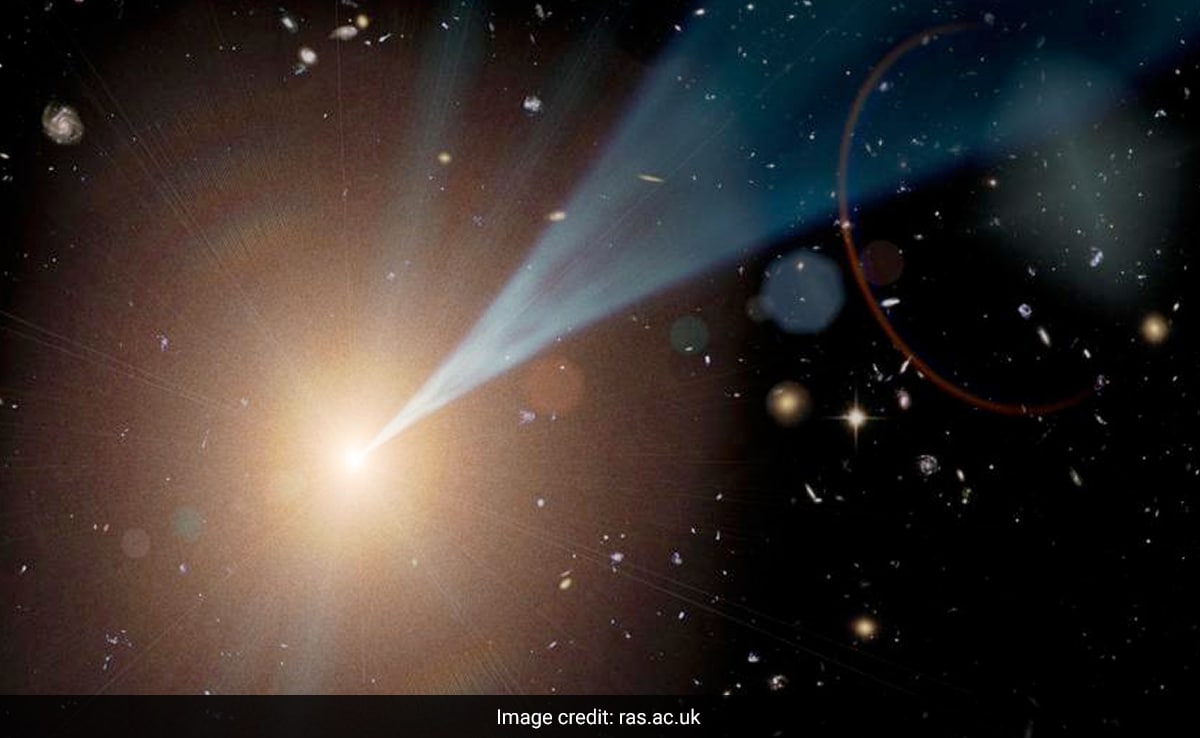
A team of astronomers has discovered a supermassive black hole pointing its jet of radiation directly at Earth. The black hole, named BL Lacertae, is located about 900 million light-years away in the constellation of Lacerta. The jet of radiation is composed of high-energy particles that travel at nearly the speed of light.
How did they find it?
The researchers used a network of radio telescopes called the Very Long Baseline Array (VLBA) to observe the black hole and its jet. They found that the jet was wobbling slightly, indicating that it was aligned with our line of sight. This phenomenon, known as “blazar mode”, is very rare and only occurs when the jet is pointing directly at us.
Why is it important?
The discovery of BL Lacertae in blazar mode is important for several reasons. First, it allows astronomers to study the physics of black hole jets and how they interact with their surroundings. Second, it provides a unique opportunity to measure the distance and mass of the black hole using a method called “parallax”. Third, it helps us understand the origin and evolution of supermassive black holes and their role in galaxy formation.
Should we be worried?
Although BL Lacertae is sending powerful radiation towards Earth, there is no need to panic. The radiation is mostly in the form of radio waves and gamma rays, which are blocked by the Earth’s atmosphere and magnetic field. Moreover, the radiation is very diluted by the time it reaches us, as it has to travel across a vast distance. Therefore, BL Lacertae poses no threat to life on Earth.
